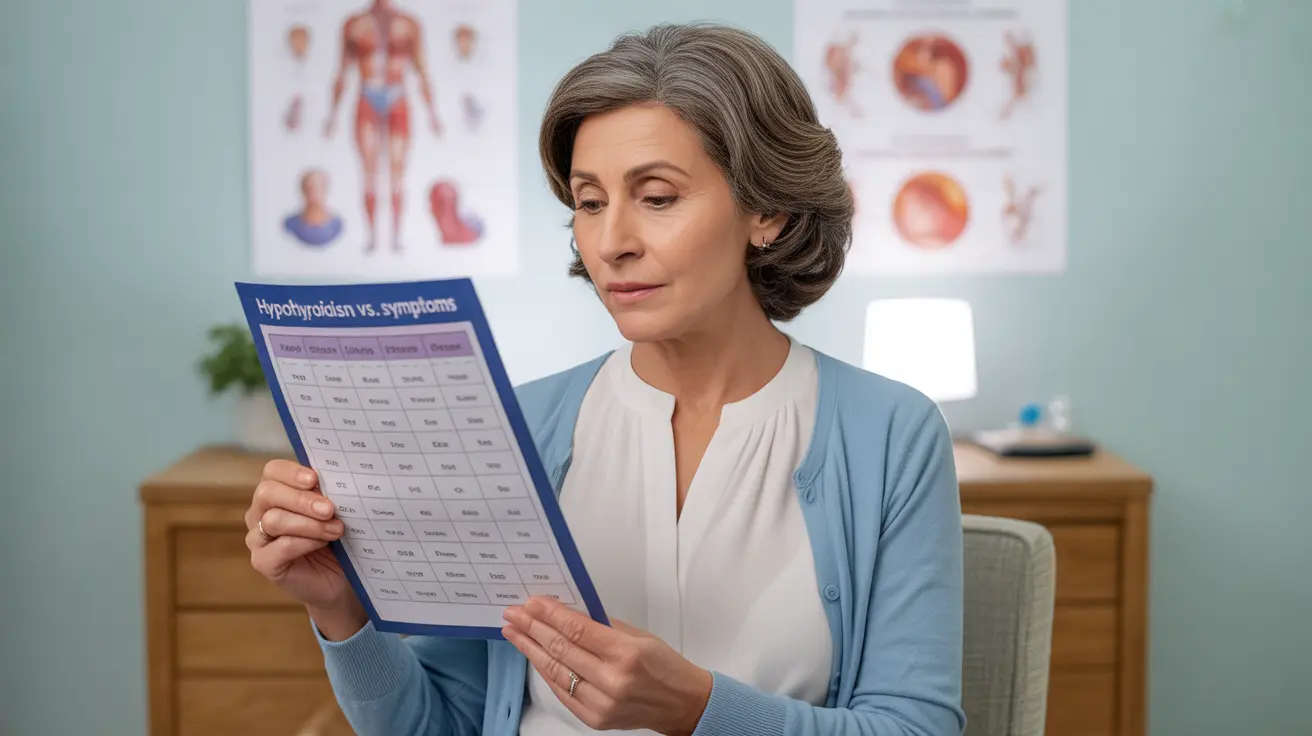For many women in their 40s and 50s, distinguishing between symptoms of hypothyroidism and menopause can be challenging due to significant overlap. Understanding how these two conditions interact and affect your body is crucial for proper diagnosis and treatment. This comprehensive guide will help you navigate the complex relationship between thyroid function and menopause.
The Connection Between Hypothyroidism and Menopause
Both hypothyroidism and menopause can occur simultaneously, making diagnosis and treatment more complex. The thyroid gland plays a vital role in regulating metabolism, energy levels, and hormone balance, while menopause marks the natural end of reproductive years. When these conditions overlap, they can create a complex web of symptoms that requires careful medical attention.
Common Symptoms and Their Origins
Shared Symptoms
Several symptoms are common to both conditions, including:
- Fatigue and decreased energy
- Weight gain or difficulty losing weight
- Mood changes and depression
- Sleep disturbances
- Hair thinning
- Dry skin
- Memory issues
Distinguishing Features
While many symptoms overlap, certain characteristics are more specific to each condition:
Hypothyroidism-Specific Symptoms
- Cold sensitivity
- Muscle weakness
- Slow heart rate
- Constipation
- Elevated cholesterol levels
Menopause-Specific Symptoms
- Hot flashes and night sweats
- Irregular periods
- Vaginal dryness
- Loss of bone density
- Changes in breast tissue
Diagnosis and Testing
Proper diagnosis requires comprehensive medical evaluation and specific blood tests. For thyroid function, doctors typically check:
- TSH (Thyroid Stimulating Hormone)
- Free T4 levels
- Free T3 levels
For menopause, healthcare providers will consider:
- Age and medical history
- Menstrual patterns
- FSH (Follicle Stimulating Hormone) levels
- Estradiol levels
Treatment Approaches
Managing Hypothyroidism During Menopause
Treatment typically involves:
- Thyroid hormone replacement therapy
- Regular monitoring of thyroid levels
- Dose adjustments as needed
- Lifestyle modifications
Addressing Menopausal Symptoms
Management strategies may include:
- Hormone replacement therapy (when appropriate)
- Natural remedies and supplements
- Diet and exercise modifications
- Stress management techniques
Lifestyle Recommendations
Adopting healthy habits can help manage both conditions:
- Regular exercise
- Balanced nutrition
- Adequate sleep
- Stress reduction
- Regular medical check-ups
Frequently Asked Questions
What are the common symptoms that overlap between hypothyroidism and menopause?
Common overlapping symptoms include fatigue, weight gain, mood changes, sleep problems, hair thinning, and memory issues. Both conditions can affect metabolism and energy levels, making it challenging to distinguish between them without proper medical testing.
How can I tell if my fatigue and mood changes are due to hypothyroidism or menopause?
The best way to determine the cause of your symptoms is through comprehensive medical testing. While both conditions can cause fatigue and mood changes, thyroid function tests can specifically identify hypothyroidism, while hormone tests can confirm menopausal status.
Does menopause affect thyroid hormone levels and how should thyroid function be managed during this time?
Menopause can influence thyroid hormone levels, and hormonal changes during this time may affect thyroid function. Regular monitoring of thyroid levels is essential during menopause, and medication dosages may need adjustment to maintain optimal thyroid function.
What tests are recommended to diagnose hypothyroidism in women going through menopause?
Recommended tests include TSH, Free T4, and Free T3 levels. Additional testing may include thyroid antibodies to check for autoimmune thyroid conditions. These tests should be performed alongside hormonal evaluations for menopause.
Can treating hypothyroidism improve menopausal symptoms like weight gain and depression?
Yes, proper treatment of hypothyroidism can help alleviate symptoms that overlap with menopause, including weight gain and depression. However, some symptoms may still require specific menopause-related treatments for optimal management.




